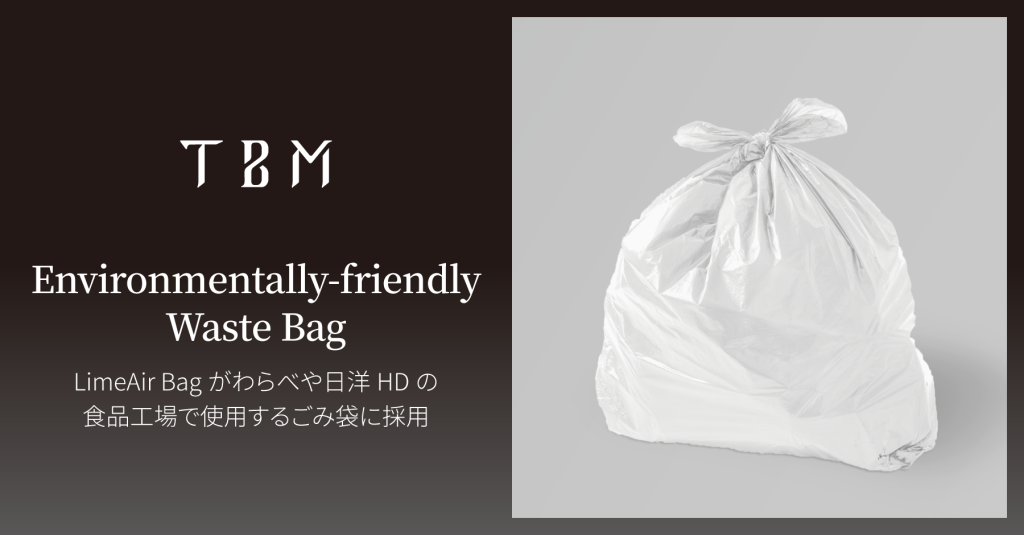プレスリリース
- LimeAir Bag
石灰石を約25%含むポリ袋「LimeAir Bag」がわらべや日洋ホールディングスの食品工場で使用するごみ袋に採用

株式会社TBM(本社:東京都千代田区、代表取締役CEO:山﨑敦義、以下TBM)の石灰石を約25%含むポリ袋「LimeAir Bag(ライムエアーバッグ)」が、わらべや日洋ホールディングス株式会社(本社:東京新宿区、代表取締役社長:辻英男、以下わらべや日洋ホールディングス)の食品工場で使用されるごみ袋に採用されました。
石灰石を約25%含むポリ袋LimeAir Bagは、一般的なポリエチレン製の袋よりも軽く、わらべや日洋ホールディングスが従来使用していたポリエチレン製ごみ袋をLimeAir Bagに切り替えることにより、石油由来プラスチックの使用量を年間約28%削減、CO₂を含む温室効果ガス排出量を約22%削減できる効果*1が見込まれます。今後TBMは、食品に限らず、さまざまな工場の環境配慮施策をLimeAir Bagの販売を通じて推進していきます。
*1 TBMによる概算(原材料調達~焼却処分)。保証値ではなく、製造条件等によって変動の可能性があります。
LimeAir Bagの3つの特長
特長1 石油由来プラスチックの使用量を削減
LimeAir Bagはポリエチレン製の袋と比較し、石油由来プラスチックの使用量を最大34%削減することができます。
特長2 CO₂を含む温室効果ガス排出量を削減
LimeAir Bagはポリエチレン製の袋と比較し、ライフサイクル全体(原材料調達〜ペレット製造〜成形〜輸送〜処分[焼却])におけるCO₂を含む温室効果ガス排出量を最大29%削減することができます。
特長3 空隙コントロール技術で軽量化を実現
ポリエチレン樹脂と石灰石(炭酸カルシウム)を混練して延伸することで、炭酸カルシウムの粒の周りに空気の層(空隙)が生じます。その空隙をコントロールすることで、LimeAir Bagはポリエチレン製の袋と比較し、最大約10%の軽量化を実現しています。
